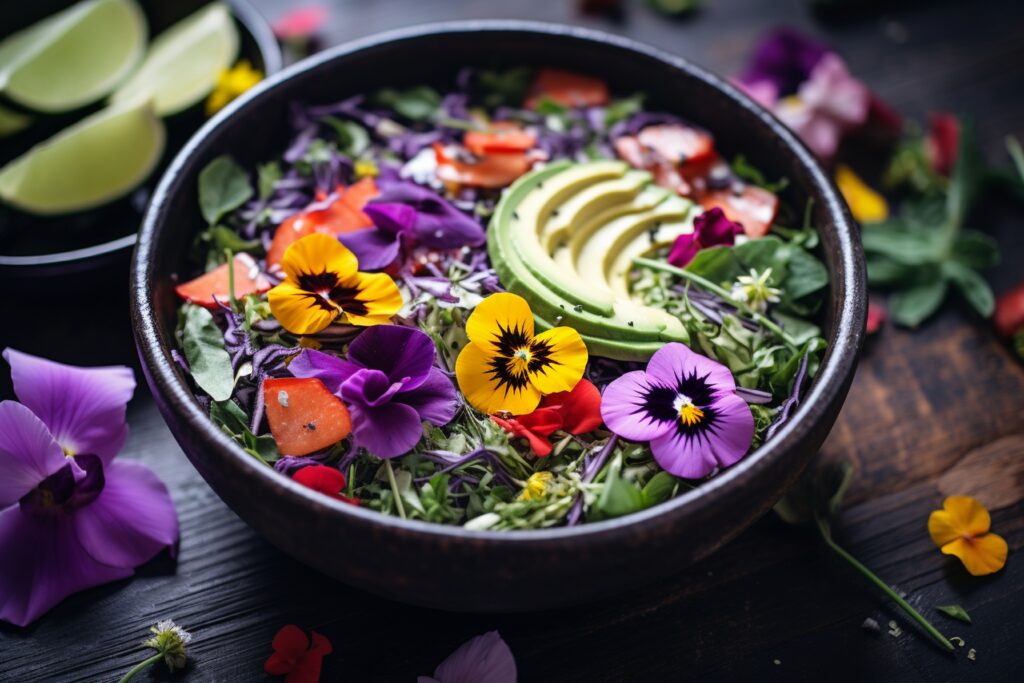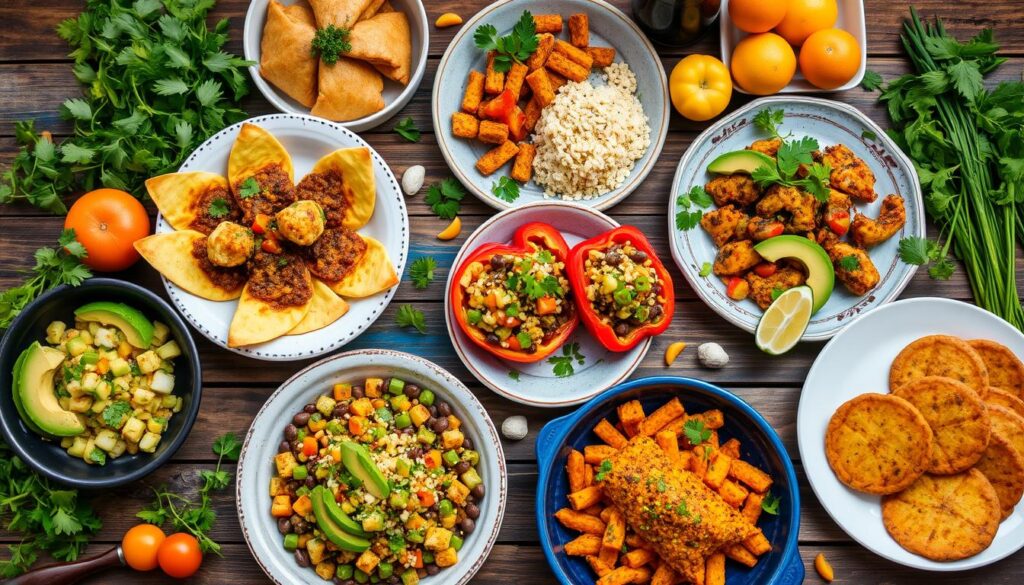Middle Eastern cuisine offers an abundant selection of naturally vegan dishes that showcase the region’s sophisticated use of vegetables, legumes, and grains. This culinary tradition, with its emphasis on fresh ingredients and thoughtful preparation, provides excellent opportunities for creating satisfying vegan meals that honor traditional methods while embracing contemporary dietary preferences.
Understanding Middle Eastern Culinary Principles
The foundation of Middle Eastern cooking lies in understanding its fundamental principles: the importance of fresh ingredients, the strategic use of herbs and spices, and the tradition of mezze-style dining that emphasizes variety and sharing.
Essential Ingredients
Several key ingredients form the basis of Middle Eastern cooking:
Chickpeas serve as a fundamental ingredient, appearing in various preparations from hummus to falafel. The proper preparation of chickpeas significantly impacts final results.
Tahini, made from ground sesame seeds, provides richness and complexity to many dishes. The quality of tahini directly affects the success of numerous preparations.
Fundamental Techniques
Several techniques distinguish Middle Eastern cooking:
Proper spice blooming develops optimal flavor profiles. The timing and temperature of this process significantly impact final results.
Herb preparation techniques maintain freshness while releasing optimal flavor. Different herbs require specific handling methods.
Essential Preparations
Several dishes form the foundation of Middle Eastern cuisine:
Hummus This fundamental preparation requires attention to several factors for optimal results. The ratio of ingredients and preparation method significantly impact texture and flavor.
Falafel Traditional preparation methods ensure proper texture and flavor development. Several factors contribute to achieving the characteristic crisp exterior and tender interior.
Grain-Based Dishes
Various grain preparations feature prominently:
Mujaddara This lentil and rice preparation showcases the sophisticated use of caramelized onions. Proper timing ensures optimal texture development.
Bulgur Preparations Different grain preparations serve various purposes in Middle Eastern cuisine. Proper hydration techniques ensure successful results.
Vegetable Dishes
Fresh and cooked vegetable preparations offer numerous options:
Stuffed Vegetables Various vegetables serve as vessels for flavorful fillings. Proper preparation ensures even cooking and optimal texture.
Grilled Vegetables Traditional grilling techniques enhance natural flavors while maintaining textural integrity.
Sauce and Condiment Preparation
Several accompaniments enhance the main dishes:
Tahini Sauce Proper preparation ensures smooth, flavorful results. The balance of ingredients significantly impacts the final texture.
Herb Sauces Fresh herb preparations complement various dishes while adding brightness and complexity.
Traditional Methods
Several preparation methods ensure authentic results:
Vegetable Preparation Specific cutting techniques impact final texture and presentation.
Spice Mixing Traditional spice combinations create characteristic flavor profiles.
Contemporary Adaptations
Modern approaches offer additional options:
Equipment Updates Contemporary tools can facilitate traditional methods while maintaining authenticity.
Ingredient Alternatives Modern products can enhance traditional preparations while respecting traditional methods.
Professional Tips for Success
Several factors contribute to optimal outcomes:
Temperature Management Proper heat control ensures the successful execution of various techniques.
Timing Considerations Coordination of different components ensures proper final assembly.
Service Suggestions
Traditional service methods enhance the dining experience:
Presentation Principles Traditional plating techniques showcase various components effectively.
Temperature Considerations Proper serving temperatures optimize dish enjoyment.
Looking Forward
Middle Eastern cuisine demonstrates particular suitability for vegan adaptation, offering numerous naturally plant-based options while maintaining traditional flavor profiles and preparation methods.
Seasonal Considerations
Various seasons offer different opportunities:
Summer Preparations Fresh herbs and vegetables feature prominently during warmer months.
Winter Dishes Heartier preparations provide sustenance during colder seasons.
Special Occasions
Several dishes suit celebratory occasions:
Festival Preparations Traditional celebration dishes adapt well to vegan preparation.
Formal Dining Sophisticated presentations suit formal occasions while maintaining dietary preferences.
The rich tradition of Middle Eastern cooking provides an excellent foundation for creating satisfying vegan dishes that honor traditional methods while accommodating modern dietary choices. Through careful attention to technique and ingredient selection, one can create authentic Middle Eastern dishes that satisfy both traditional standards and contemporary preferences.
Share your Middle Eastern cooking experiences with #VeganMiddleEastern #PlantBasedMezze #VeganMediterranean.






